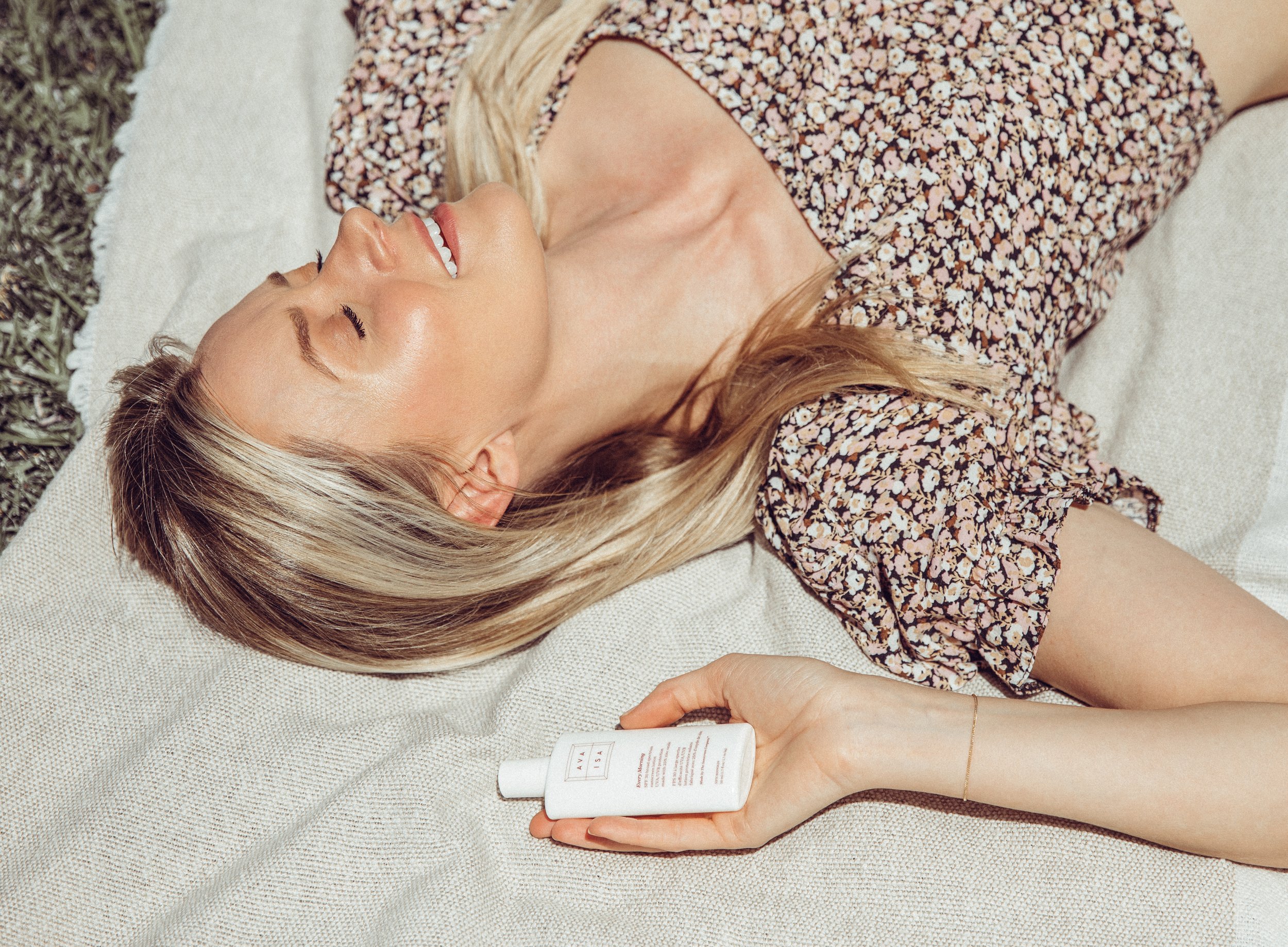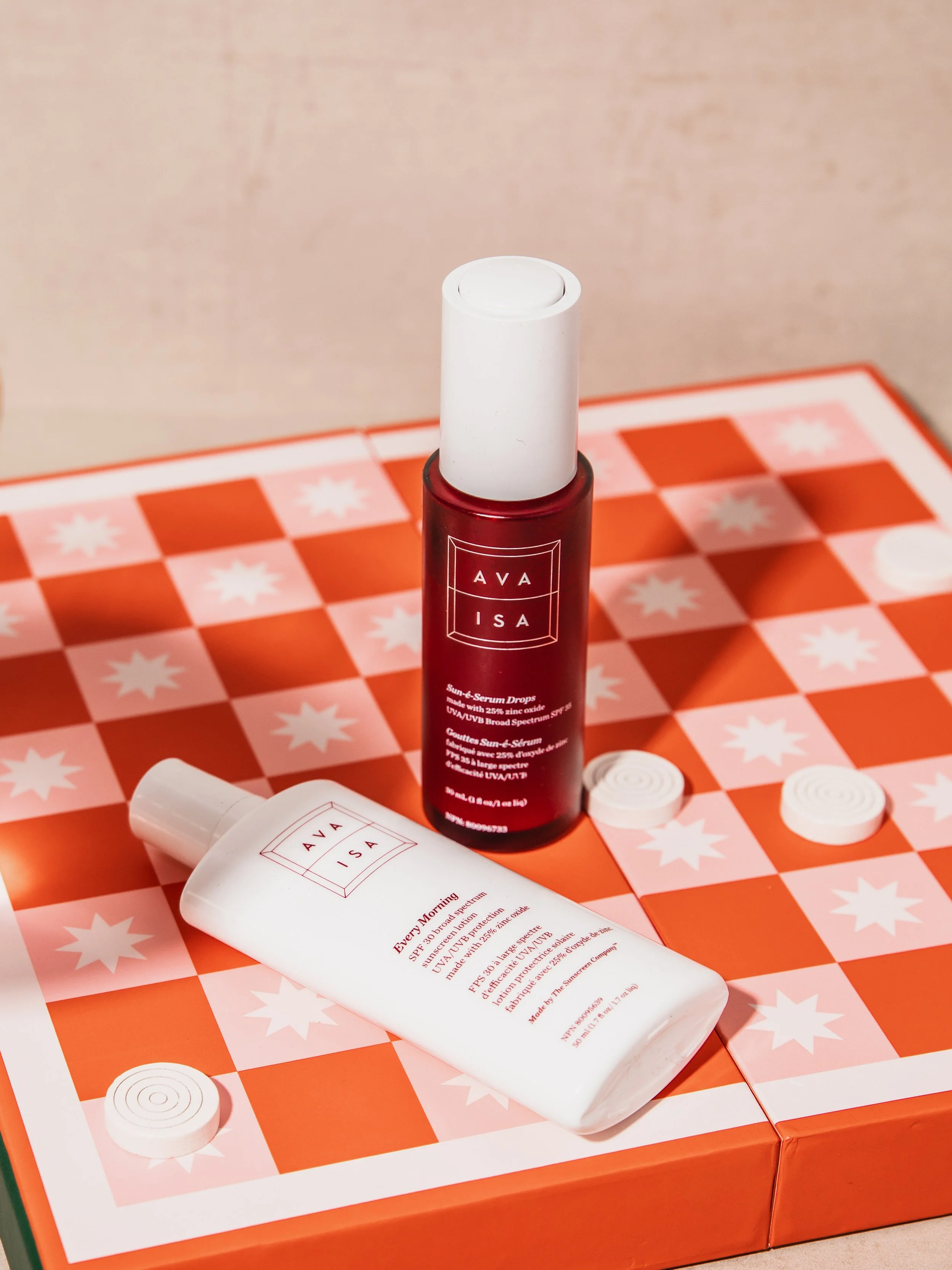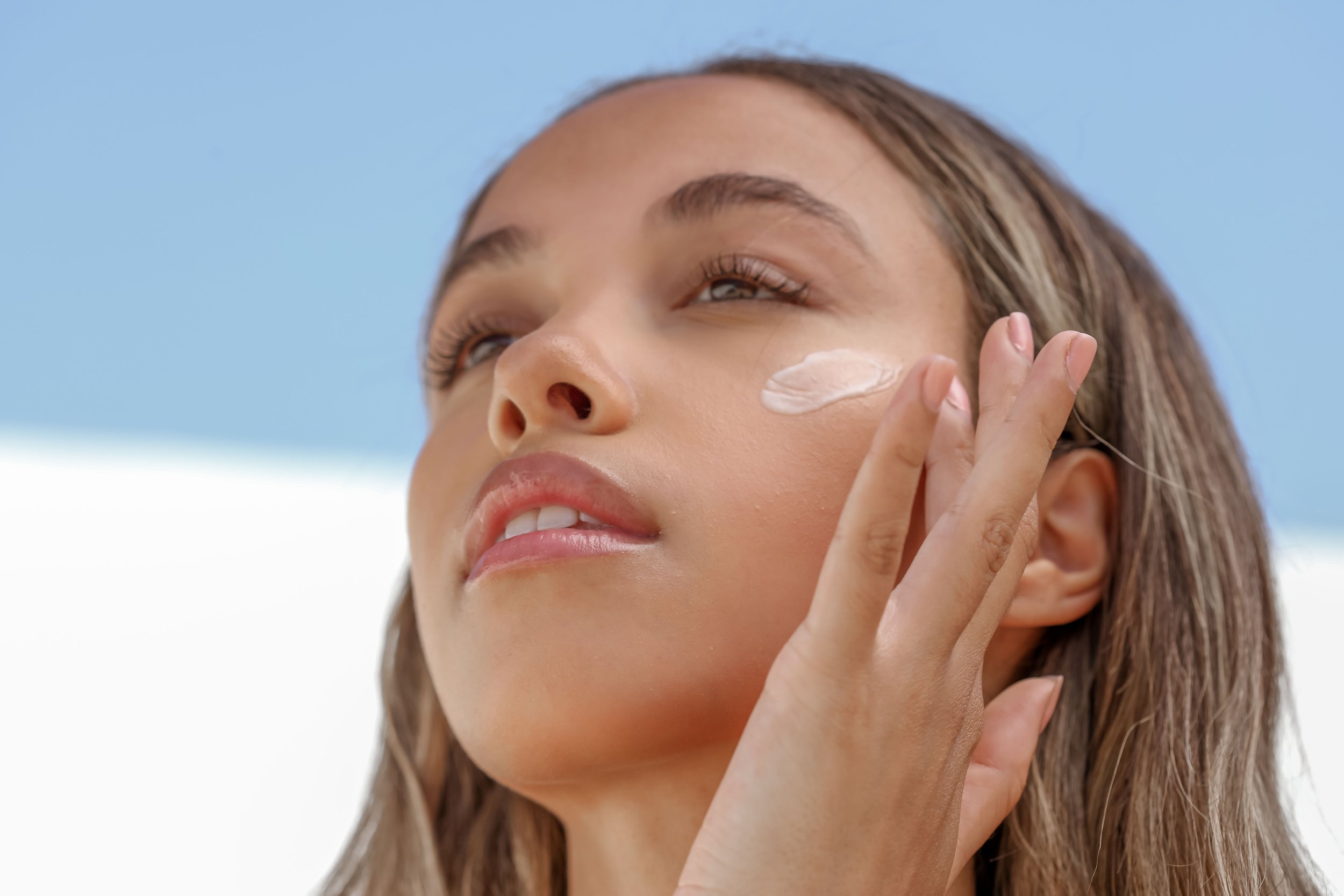
Best Face Sunscreen for Perioral Dermatitis
Discover dermatologist-recommended mineral SPF safe for perioral dermatitis—with tips, product picks, and a special discount
5 Mineral Sunscreen Myths Debunked: The Truth About Zinc Oxide
Debunk 5 mineral sunscreen myths. Discover why zinc oxide sunscreens are transparent, safe, and the best choice for broad-spectrum UVA/UVB protection
Retinoid Cycling: A Smarter, More Balanced Way to Use Vitamin A in Skincare
Discover the benefits of retinoid cycling—a smarter way to use Vitamin A in your skincare routine. Learn how rotating retinoids like bakuchiol, retinol, and prescription tretinoin can reduce irritation, boost collagen, and improve skin texture for radiant, youthful skin.
Top 3 Ingredients That Should Be in Your Mineral Sunscreen to Protect and Nourish Your Skin Naturally (and the top 3 that shouldn’t)
Not all mineral sunscreens are created equal—it's the ingredients that make the difference. Discover the top 3 must-have ingredients for a mineral sunscreen that not only protects but also nourishes your skin naturally. From the powerhouse UV filter zinc oxide, to barrier improving skincare ingredients like silicone and cholesterol, find out what to look for in your next SPF. Read on to ensure your sunscreen works with your skin, not against it.
The Issue of Benzene in Skincare: from acne products with benzoyl peroxide to certain sunscreens
Recent studies have confirmed alarmingly high levels of benzene—up to 17.5 times above permissible limits—in some popular personal care products, including acne treatments with benzoyl peroxide. Benzene, a known carcinogen, poses significant health risks, raising concerns about product contamination and ingredient degradation. Learn why consumers should demand stricter safety measures from the personal care industry and how the FDA is addressing these serious contamination issues.
Mineral Sunscreens vs. Korean Sunscreens: Which Offers Better Protection Against Pigmentation?"
When it comes to preventing pigmentation, not all sunscreens are created equal. Mineral sunscreens, known for their zinc oxide content, offer strong protection against long wave UVA and blue light—key culprits in skin discoloration. On the other hand, Korean sunscreens often use next-gen UV filters, but how do they compare when it comes to protecting against pigmentation? In this post, we examine six popular Korean sunscreens and compare them with a 25% zinc oxide formula to uncover which sunscreen offers the best defense against hyperpigmentation and oxidative stress.
Understanding chemical SPF Boosters and Sunscreen Doping: how are these hidden ingredients different to their chemical UV filter counterparts
Discover the truth behind SPF boosters like butyloctyl salicylate, tridecyl salicylate, polyester-8,
ethylhexyl methoxycrylene, and ethyl ferulate in sunscreens. These chemical analogs are increasingly found in both mineral and chemical sunscreens, often used to reduce the concentration of active UV filters like zinc oxide. Learn how these ingredients affect sunscreen performance and whether they compromise true all-mineral formulations.
How Menopause Affects Skin: Topical Skincare Solutions
Menopause and perimenopause can lead to significant changes in the skin, including dryness, loss of elasticity, and increased sensitivity. As hormone levels fluctuate, the skin may require special care to maintain its health and appearance. Topical skincare products, particularly those focused on hydration, barrier repair, and anti-aging, can play a crucial role in managing these changes. Topical estrogen is an emerging area of interest as well within the industry.
Why our Ava Isa Sunscreens are now EWG Verified.
Discover why Ava Isa Daily Facial Sunscreens are EWG Verified, the top third-party verification for product safety and brand transparency. Explore the rigorous EWG Verified process and why it ensures the highest standards for our all-mineral sunscreens.
Understanding SPF Boosters in Mineral Sunscreens: Unveiling the Truth Behind Zinc Oxide Concentrations
Have you ever wondered why some mineral sunscreens list 25% zinc oxide while others have just 2%? Our latest analysis dives deep into the role of SPF boosters in all-mineral sunscreens, exploring the surprising connection between zinc oxide concentration and SPF ratings. Discover how SPF boosters can influence sunscreen efficacy and what it means for your sun protection choices.
Do you have any products that are comparable to Beautycounter's? Some Beautycounter Skincare Swaps
We’ve gotten a flood of former Beautycounter customers asking what skincare swaps we could offer for some Beautycounter bestsellers. Turns out we do have some great skincare actives in common and we share a focus on curating the best in clean beauty skincare products. Check out our recommendations for best Beautycounter swaps.
Salicylate Safety in Pregnancy: what is a pregnant safe sunscreen?
Are salicylates in sunscreens like octisalate and butyloctyl salicylate safe in pregnancy? What are the best pregnancy safe sunscreens? Should you avoid mineral sunscreens that contain butyloctyl salicylate in pregnancy?
What makes for the best mineral sunscreens for the face for every day: sunscreens with titanium dioxide or zinc oxide?
What makes for the best mineral sunscreen for your face? Let’s compare the UV filters zinc oxide versus titanium dioxide to see what gives the best protection, transparency and overall aesthetics.
Has Tretinoin been discontinued in Canada? What are the best alternatives to tretinoin?
Are you a Canadian struggling to get prescription tretinoin? Shortages and product discontinuations have left many Canadians searching for a tretinoin alternative. We compare tretinoin to non-prescription forms including hydroxypinacolone retinoate, retinol, retinal, retinyl palmitate and bakuchiol. Which is the best form when we look at efficacy, tolerability and stability.
Is the FDA going to ban all 'chemical' sunscreens?
(Image source: https://pluslifehealth.com.au/collections/ice-baths-cold-plunges)
This article explores the ongoing debate surrounding the potential ban of chemical sunscreens by the FDA in the United States. It provides an overview of chemical sunscreen ingredients, the FDA's regulatory concerns regarding their safety and environmental impact, and proposed regulations aimed at improving sunscreen safety. While the FDA has not implemented a ban, it continues to review safety data and request additional information on specific ingredients. Alternatives such as mineral sunscreens are highlighted as safer options
The debate is over: Butyloctyl salicylate is octisalate and cannot be used in an 'all-mineral' sunscreen.
The proof is here. Butyloctyl salicylate is the ‘chemical’ UV filter Octisalate with minor modifications and cannot be used in sunscreens labelled as ‘all-mineral’. Learn more about safety issues including for pregnant women and young children.
Where can I buy Granactive Retinoid in Canada? Why was it discontinued?
Why is Granactive Retinoid not available in Canada? You may have been wondering this very question if you love Hydroxypinacolone Retinoate like we do. We’re happy to announce it is now allowed for sale in Canada as of December 2023. Learn all the details and how to shop to best and highest concentration of Granactive Retinoid in the industry.
4 Ways to Use Natrèceutique's Soothing Intensive Serum for Instant Hydration, Glowy Skin and to Reduce Facial Puffiness
Discover the transformative power of our Natrèceutique line's Soothing Intensive Serum, and its versatility beyond hydration as the perfect companion for facial massage. Particularly beneficial for those facing hormonal fluctuations or age-related concerns, our serum offers the ideal consistency for a soothing massage, promoting circulation and lymphatic drainage.
Navigating the Tretinoin Dilemma: A Guide to Gentle Alternatives and Skincare Balance
Discover a skincare revolution as influencers rethink Tretinoin. Uncover gentle alternatives like Bakuchiol and Hydroxpinacolone Retinoate, expert tips for mature skin, and a comprehensive routine beyond Vitamin A. Find your perfect balance with our clinical skincare solutions."



















